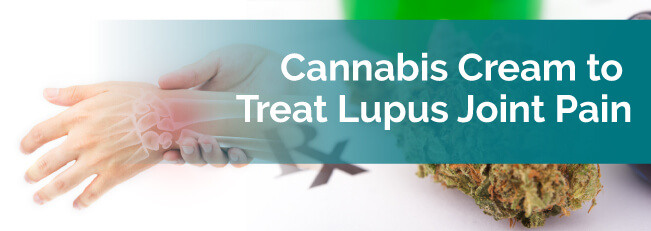
What do you see in your mind when you think about using marijuana? If you thought about smoking a blunt or pipe, you’re not alone — smoking is the most well-known way to use cannabis. But, knowing only about smoking limits your ability to choose the right medical marijuana option for you.
One lesser-known form of medical marijuana is topical treatments. You can get cannabis-infused balms, creams, bath soaks, lip balm and even intimate oil.
If you deal with joint pain and inflammation due to lupus, using creams instead of smoking could work better for you. Let’s check out the pros and cons:
Generally, when you take cannabis meds, you wait for it to get into your system and affect your entire body. But what if you need more intense and timely relief?
Using a cream cuts out the middleman and lets you avoid waiting for your digestive or respiratory system to take in the medication. Just apply the cream right where it hurts and feel it kick in.
Smoking marijuana has the risk of damaging your respiratory system. Just like smoking tobacco, smoking weed makes you take in harmful tar and chemicals.
However, creams don’t have that problem since you don’t inhale them — they might even moisturize your skin.
Some marijuana products, especially those with high THC levels, can make you feel the “high” that recreational users often pursue. But, not everyone wants to feel that way when they take their meds. You might need to go to work or school, or maybe it’s just not your thing.
Cannabis creams don’t give you any psychoactive effects, so you can get your treatment and still feel clearheaded and focused. It lets you get the health benefits without the drawbacks.
If you only want to use cannabis medicine for joint pain relief, you don’t have to worry about cannabis cream’s singular purpose.
But, lupus has numerous symptoms, some of which you might want to also treat with marijuana. One of medical marijuana’s greatest strengths is its versatility and ability to address more than one health problem at once. If you use a topical treatment only, you just get pain relief.
Even when a state legalizes marijuana, it doesn’t always allow every kind of marijuana product. For instance, Minnesota doesn’t allow the sale and use of marijuana leaf. So, you’ll want to check your state laws and regulations before you consider using a topical cannabis treatment.
Some patients experience pain in places where they can’t apply the cream themselves. The pain could affect a place like their back that people with any ability couldn’t reach. Or, the patient could have a disability that makes it hard to reach the area.
Either way, if the patient doesn’t have someone to apply the cream to those areas or an assistive tool, they can’t use it. So, the patient must consider the feasibility of regular application.
As you can see, whether marijuana cream works for you depends on your health problems, personal preferences and individual circumstances.
Everyone will have a different experience, but if you want to give it a shot, you can always try a topical cream under a doctor’s supervision. You can also consult with a budtender to get their opinion on what creams work best for joint pain.
For more information about how cannabis can be used to treat Lupus, check out our resources: